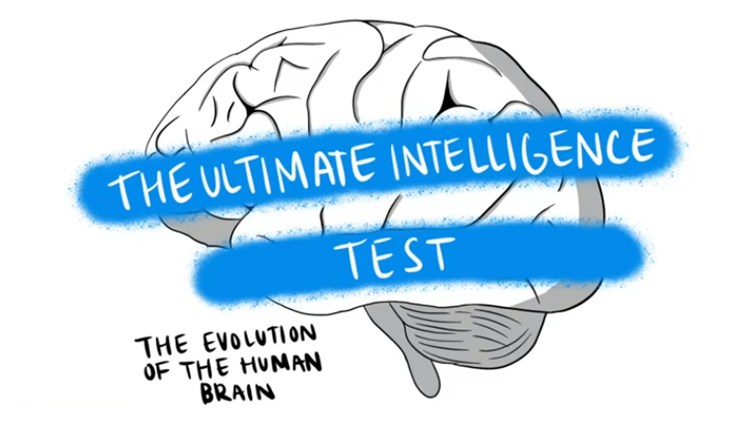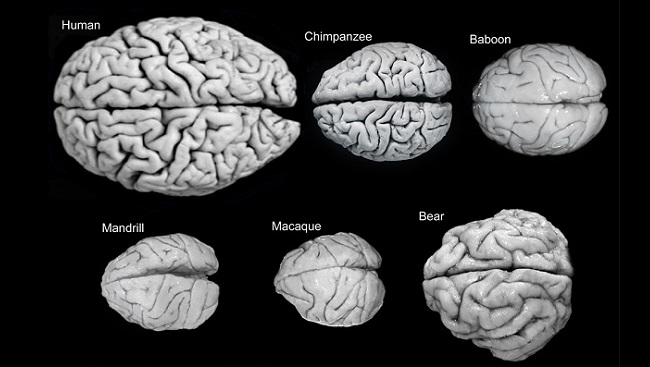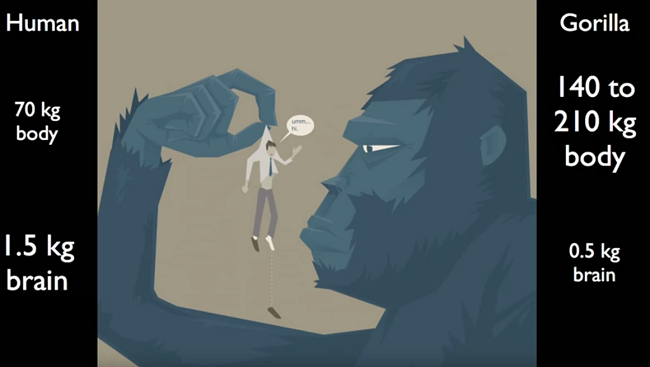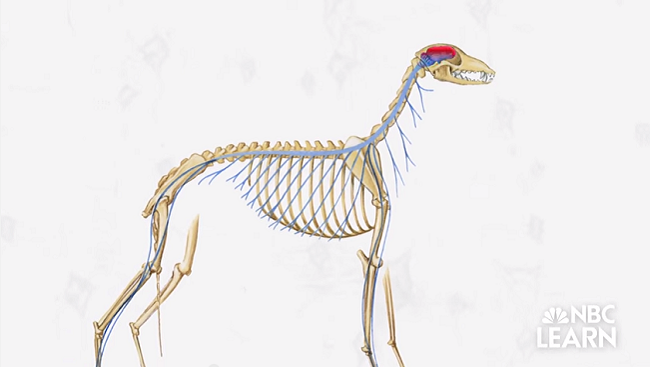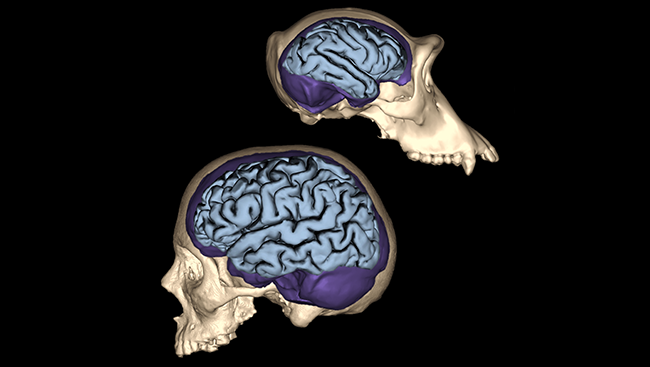Domesticating Chickens Shrunk Their Brains
- Published12 Jan 2021
- Author Calli McMurray
- Source BrainFacts/SfN
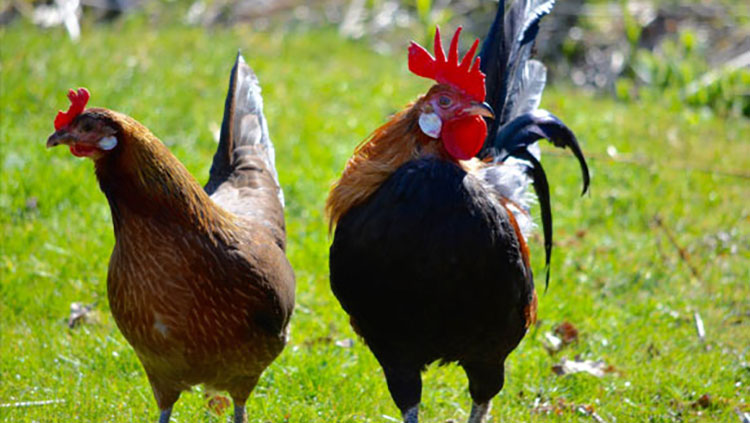
The “domestication phenotype” of floppy ears, curly tails, and white spots on fur appear in a range of species, like horses, cows, foxes, and dogs. Another shared trait? Smaller brains. These commonalities may pop up from breeding based on the quality most important to ancient humans: friendliness. Increasing friendliness, or at least decreasing fear of humans, may influence a similar set of genes or brain structures across species.
Brain structure and behavior are wound together: changing one impacts the other. A team of scientists studied this process in red junglefowl (pictured here), the wild ancestor of the chicken. The team bred two different lines of junglefowl, based on their fear of humans. After ten generations, the least fearful birds had smaller brains, relative to body size, than the more fearful birds. Specifically, domestication reduced the brainstem, an area of the brain involved in unconscious fear and stress responses. This change may have helped chickens navigate life on a farm, surrounded by startling noises and busy humans.
CONTENT PROVIDED BY
BrainFacts/SfN
References
Katajamaa, R., & Jensen, P. (2020). Selection for reduced fear in red junglefowl changes brain composition and affects fear memory. Royal Society Open Science, 7(8), 200628. doi:10.1098/rsos.200628
Trut, L., Oskina, I., & Kharlamova, A. (2009). Animal evolution during domestication: The domesticated fox as a model. BioEssays, 31(3), 349-360. doi:10.1002/bies.200800070
Study: Chickens Have Smaller Brains than Their Junglefowl Relatives. (2020, September 1). Retrieved September 22, 2020, from http://www.sci-news.com/biology/chickens-smaller-brains-junglefowl-relatives-08802.html
Also In Evolution
Trending
Popular articles on BrainFacts.org



